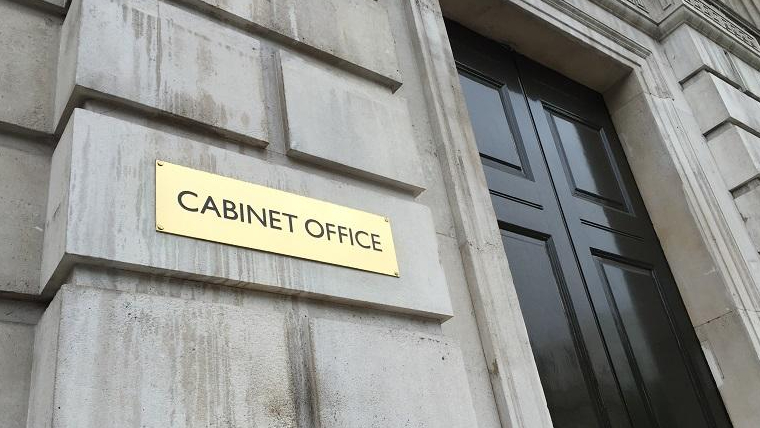The department’s so-called clearing house operation is currently undergoing an internal review – after the ICO’s offer to lead an audit was declined
Credit: Howard Lake/CC BY-SA 2.0
The Cabinet Office’s decision not to publish the full report of its upcoming review of the Freedom of Information clearing house could undermine public confidence, the Information Commissioner has warned.
The department finally announced details of its in-house review of the unit in April, eight months after saying it would evaluate the secretive clearing house, and just hours before the Public Administration and Constitutional Affairs Committee released its own report into the team. The clearing house was established 18 years ago and provides advice to departments in their handling of FOI requests.
Critics have alleged that the unit has, as a matter of course, blocked requests from blacklisted journalists – which the Cabinet Office has denied.
In recent months it has been the subject of increasing concern and scrutiny, and the Information Commissioner’s Office and MPs have now both raised worries about the terms of reference for the internal assessment, which say ministers will only publish a summary of the review, not the full report.
Information commissioner Jonathan Edwards said this was “perhaps the biggest risk to public confidence in the process”.
“We recommended when we saw the draft terms of reference that, in the interests of transparency, the full final report by the reviewer should be published but this was not accepted by the Cabinet Office,” Edwards said in a letter to PACAC on 28 June.
Related content
- Government withholds information on anti-disinformation unit
- MPs maintain scrutiny of Cabinet Office FoI hub
- Information commissioner expresses transparency concerns and calls for FOI updates
PACAC chair William Wragg wrote to Edwards, asking if he felt the terms of reference provided the same or similar levels of public reassurance as the audit proposed by the ICO in May 2021. He also asked if the Cabinet Office had provided enough information in the terms of reference for the ICO to understand “whether the clearing house makes a necessary or helpful contribution to cross-Government FoI processing”.
The Cabinet Office turned down the ICO’s offer to conduct an independent review of the clearing house last year, instead choosing to assess the unit internally.
Edwards said the terms of reference “appear to address similar issues to those that we would have explored as part of an audit”.
“To that end, we are hopeful that the review will offer similar reassurance and detail as that we would have provided,” he added.
But he said it would be difficult to say definitively what the difference would have been “between an exercise conducted by the independent regulator as opposed to one commissioned, scoped and staffed by the regulated body” until the report is published.
On his concerns about the Cabinet Office’s failure to commit to publishing the full report, Edwards said: “We have continued to encourage both the review team and the Cabinet Office to reconsider this approach and the questions you pose are good reasons why we have made this case.”
The information commissioner said the impact of the report not being published in full “remains to be seen”.
Edwards also said the Cabinet Office had shared the terms of reference with the ICO before publishing it and “accepted some, but not all” of the changes the regulator then recommended.
He said Sue Langley, who is leading the review, has been in touch with him since she was appointed, and the ICO’s director of FoI and transparency, Warren Seddon, has also met and discussed the work of the review with the secretariat.
Edwards said he has also asked to meet the chair “once the review has made some progress so that we can discuss the emerging conclusions”.
‘Professionalism and impartiality’
Cabinet Office minister Nicholas True also wrote to PACAC, in another letter published by the committee last week, to explain the choice of Langley to chair the review.
Wragg had written to Langley, asking her to set out what action she has taken to ensure her investigation is – and is perceived to be – independent.
True responded on her behalf, saying: “It is her professionalism, impartiality and ability to work with senior colleagues that she brings to the review. I have every confidence that Sue Langley will provide the independent challenge necessary to address the concerns that have been raised through your inquiry.”
The clearing house unit was set up within the Cabinet Office set up in 2004 and is responsible for helping coordinate responses to certain Freedom of Information requests across government.
The internal review will seek to answer:
- Whether the Clearing House’s operations are proportionate and effective
- If the unit is operating in line with legislation, including GDPR and the Data Protection Act, and ICO guidelines
- Whether there is sufficient public information available about the operation of the clearing house. And if not, what further information should be published
It will also look into whether the “applicant blind” principle for FoIs is well understood and followed across government.
The Cabinet Office has claimed that all requests are considered without officials knowing the identity of the requester but the PACAC report in April found this was not always the case.




